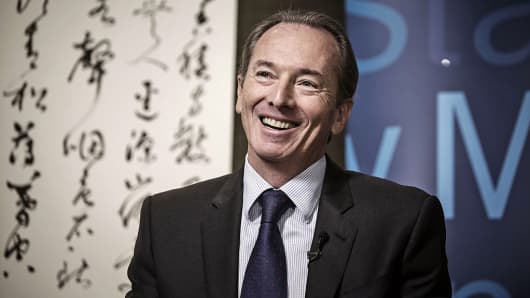Controversy
| Morgan Stanley building in San Diego, California |
On October 3rd, 2016 Morgan Stanley was charged with dishonest and unethical conduct by Massachusetts top security regulator. This charge can be tracked all the way back to January of 2014. In efforts to boost employee output Morgan Stanley introduce competition within the firm. Having financial advisers aim to sell security based loans to clients, and offer incentives for hitting certain goals. According to Massachusetts secretary of commonwealth, "The incentives were: $1,000 for 10 loans, $3,000 for 20 loans, and $5,000 for 30 loans." Pushing their employees to sell these loans even if it wasn't in the clients best interest. Though none of the loans purchased were without the person consent of each client. These practices continue all the way up until April 2015, with performances closely tracked by supervisors. Not until $24 million was added in new loan balances, tripling their original balance from before the competition.
 |
| One of Morgan Stanley's wealth management teams |
Stakeholders
When talking about stakeholders and who has ties with this company, almost all parties were effected by their actions. The worst of course are the clients that suffered from their advisers unnecessary loans that lost them money. Clients were at mercy of Morgan Stanley brokers who went about business "without regard for the fiduciary duty owed to the investor"(Svea). Along with clients, shareholders were unaware with the companies in-house competition. When new broke about the scandal, stock prices fell hurt hurt the likes of the shareholders. Morgan Stanley gained during their competitions experiment, but ultimately may suffered in the end. Seeing how their case turns out with the commonwealth of Massachusetts they may end up having to pay more than $24 million. The only real winners that came out of this were the 30 employees that took park in the competition. They were able to earn these incentives without getting any trouble from the law.Individualism
 |
| CEO James Gorman |
Utilitarianism
Utilitarianism is based off happiness and pleasure, those being the only thing of intrinsic value. In the eyes of utilitarian, " business actions should aim to maximize the happiness in the long run for all conscious beings that are affected by the business action" (case manual). Allowing for some stakeholders be unhappy, but giving them reasons to be happy in the long run. Looking at Morgan Stanley, the firm made a lot of clients uneasy by selling loan that clients didn't necessary need. Essentially allowing for clients to suffer in order bring in more profits for the firm. This drove away clients from Morgan Stanley and ultimately ended up hurting more stakeholders than it benefited. That's why a utilitarian would consider this to be unethical because short term profits were outweighed by the long term affects on stakeholders.
 |
| Morgan Stanley office in New York City |
Kantianism
Kantianism is an ethical theory that is based off rationality. It looks further into the autonomy of individuals and focuses on honesty and freedom. According to Dr. Salazar of Western New England University the ethical guidelines for Kantianism consist of, "Always act in ways that respect and honor individuals and their choices. Don't lie, cheat, manipulate or harm others to get your way. Rather use informed and rational consent from all parties. From a Kantian point of view, Morgan Stanley clearly does not stay true to those rules. Manipulating clients to invest and buy a loan to benefit from incentives. Not honoring the fact that they are the clients' financial advisers. Instead, pushing them unnecessary loans and not respecting the clients well being. Therefor, a Kantian would consider this to be unethical.
Virtues Theory
When looking from the ethical theory know as Virtue theory, one focuses on character traits that promote wellness or flourishing of individuals within a society. From business stand point, it's on a company to embody a variety of virtuous or good character traits and to avoid vicious or bad character traits. Morgan Stanley claims, through their mission statement, that they claim they demonstrate integrity. A quality known as being honest and having strong moral principles. Yet, when this competition took place a Virtue theorist would think other wise. Morgan Stanley failed to maintain their integrity by persuading clients to invest and buy loans when they knew it might not be in the clients best interest. Leading clients with false hope to work towards their own goals. For those reasons, a virtue theorist would say that Morgan Stanley's actions were indeed unethical.
Justified Ethics Evaluation
Morgan Stanley's choice to introduce competition within their company is no doubt in my mind unethical. Business competition can be a great tool to allow workers become more efficient in the work place. That of course talking about an atmosphere suitable for competition, not within the confines of a financial planner company. This allows Morgan Stanley employees to excel at their job without actually doing what it is a financial planner should be doing. Which is giving their (Experienced) take what clients should be doing with their money. Instead, we see employees that are striving to sell clients loans to invest in entities that they themselves aren't sure are good for them. Using client as a means to their ends, in other words using the client make a profit. That to me shouldn't be how a financial planner operates.
References Cited
Herbst-Bayliss,
Svea. "Morgan Stanley Charged with Running Unethical Sales Contests:
Regulator." Reuters. Thomson Reuters, 03 Oct. 2016. Web. 06 Feb.
2017.
Pagliery,
Jose. "Morgan Stanley Sued for Using 'sales Contests' to Churn out
Loans."CNNMoney. Cable News Network, 3 Oct. 2016. Web. 21 Feb. 2017.
Salazar, Heather. The Business Ethics Case Manual.
2014

No comments:
Post a Comment